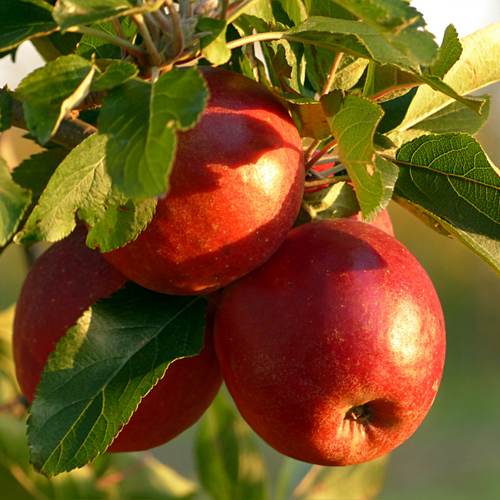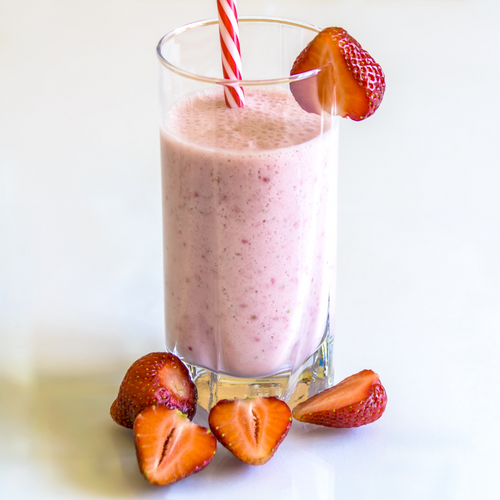Carbohydrates are our body's fuel. On the other hand, our pain au chocolat is not an essential carbohydrate for our body.
DIFFERENCE BETWEEN SUGARS TO PREFER AND THOSE TO LIMIT
We can simplify things by saying that the preferred sugars are those found naturally in a product, such as fruits for example. Especially since when consuming fruit, the sugar or simple carbohydrate (fructose) they contain is accompanied by fiber, which will help slow down the absorption of this sugar and thus avoid a peak in blood sugar (sugar level in the blood). Without forgetting that fruits provide many vitamins and minerals! Other sugars, called complex carbohydrates , are also found naturally in cereals, legumes, oilseeds, potatoes, sweet potatoes, but in a more “complex” form (starch) to provide energy. in the body for a long time because they are diffused more slowly than simple carbohydrates (glucose, fructose, sucrose, lactose, maltose, galactose). This is why we think about making our plate ¼ of these complex carbohydrates.
Concerning sugars to limit , it is more about simple sugars added voluntarily in products such as sodas, candies, cakes, fast food, alcohol but also in salty products such as cold meats, sauces , pizzas, cans of food, cordon bleu etc. It seems that nearly 70% of industrial salty products contain added sugar to enhance the taste. But it is also widely used as a preservative and to improve the appearance of products.
THE PROBLEM OF ADDED SUGAR
Consuming too much sugar has many harmful effects on health:
> It can make us addicted. In fact, it alters the reward circuit and our body demands a little more every day.
> It accelerates brain aging and alters the physical appearance of the body as a whole.
> Sugar is very acidifying for the body, which makes it ideal for the development of diseases.
> It undermines the proper functioning of our immune system by preventing the proper absorption of vitamin C. This creates white blood cells (our dear little soldiers) that are less effective in fighting potential pathogens.
> A diet high in sugar can alter intestinal permeability. However, if this permeability is affected, the small holes in the intestinal barrier, allowing the control of the exchange of different nutrients, widen and allow unwanted molecules to pass through. And these molecules can cause uncontrolled inflammation.
In summary, high sugar consumption is a source of imbalance in our intestinal microbiota and causes problems with skin, weight, stress, sleep, and affects our immune system.
BETTER MANAGE YOUR SUGAR CONSUMPTION
> We have a salty breakfast! In fact, a carbohydrate fast really helps to reduce your sugar consumption and does a lot of good for your body, which finds itself less overloaded from the start of the morning. So we bet everything on a savory breakfast (2 toasts of sourdough bread + 1 small avocado + 1 poached egg + spices of your choice) which will make the body's work easier, let it rest and then function better.
> We are focusing on better alternatives : we have already mentioned it but fruits should not be avoided. You can consume 1 to 3 per day maximum (we're not exaggerating, it's still sugar, even natural). Eat raw or to flavor white yogurt or homemade cakes, it also provides good micronutrients. You can also opt for sources of carbohydrates with a low glycemic index such as acacia honey, or natural and organic stevia. Once again, these are more interesting alternatives than table sugar, but we remain reasonable on the quantities.
> Sort through the labels : as we mentioned above, even salty products contain sugar, often without us realizing it. And there are many sugar derivatives (nearly sixty) that can be difficult to detect…at least until you read this article! So learn to identify “ose” nouns like dextrose, fructose, maltose, sucrose, but also syrups like glucose, corn, barley malt, invert sugar, maple, agave syrup. And other names like maltodextrin, caramel, molasses etc.
> Keep an eye on the nutritional values table : under carbohydrates you will find “including sugars” which refers to simple sugars. To help you find your way, remember that any values below 5 g per 100 g of solid product, and 2.5 g per 100 mL of liquid product are entirely reasonable. When products state an amount greater than 10-15g, try to find a less sugary alternative. Especially if you consume more than 100 g of product.
> Detoxify your body! It is sometimes difficult not to succumb to little treats. And even if you have to know how to treat yourself, at each change of season, we recommend that you detoxify your body with the 30-DAY Restart pack . This program was specially designed to relieve the emunctory organs thanks to 4 complementary products allowing you to get off to a good start!
To learn more about detox and its many benefits, click here !
Sources:
[1] Wölnerhanssen BK, Meyer-Gerspach AC. Effekte von Zuckerkonsum auf die Gesundheit und mögliche Alternativen [Health effects of sugar consumption and possible alternatives]. Ther Umsch. 2019 Sep;76(3):111-116. German. doi:10.1024/0040-5930/a001070. PMID: 31498044.
[2] DiNicolantonio JJ, O'Keefe JH, Wilson WL. Sugar addiction: is it real? A narrative review. Br J Sports Med. 2018 Jul;52(14):910-913. doi:10.1136/bjsports-2017-097971. Epub 2017 Aug 23. PMID: 28835408.
[3] Freeman CR, Zehra A, Ramirez V, Wiers CE, Volkow ND, Wang GJ. Impact of sugar on the body, brain, and behavior. Front Biosci (Landmark Ed). 2018 Jun 1;23(12):2255-2266. doi:10.2741/4704. PMID: 29772560.
[4] Tan HE, Sisti AC, Jin H, Vignovich M, Villavicencio M, Tsang KS, Goffer Y, Zuker CS. The gut-brain axis mediates sugar preference. Nature. 2020 Apr;580(7804):511-516. doi:10.1038/s41586-020-2199-7. Epub 2020 Apr 15. PMID: 32322067; PMCID: PMC7185044.
[5] Mantantzis K, Schlaghecken F, Sünram-Lea SI, Maylor EA. Sugar rush or sugar crash? A meta-analysis of carbohydrate effects on mood. Neurosci Biobehav Rev. 2019 Jun;101:45-67. doi: 10.1016/j.neubiorev.2019.03.016. Epub 2019 Apr 3. PMID: 30951762.











